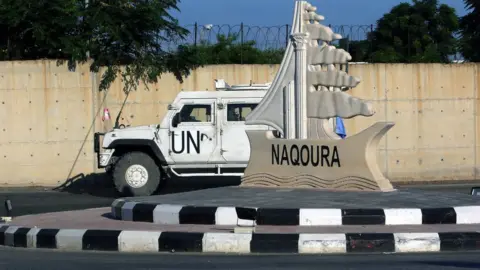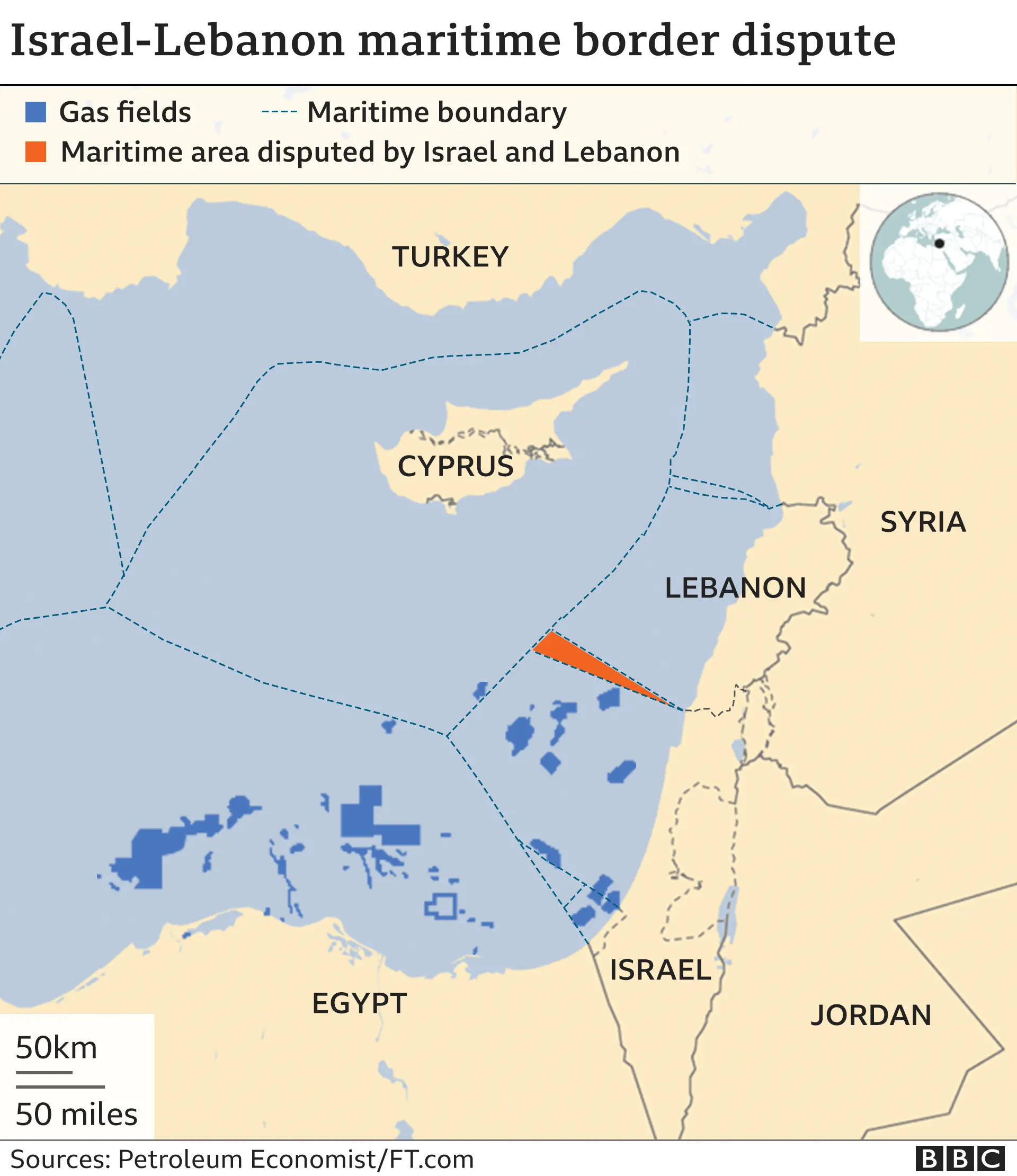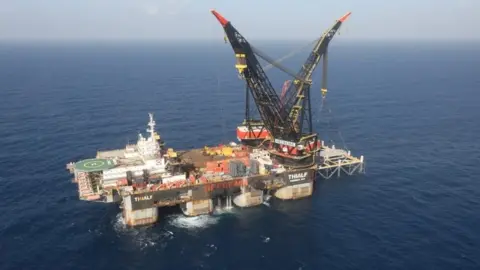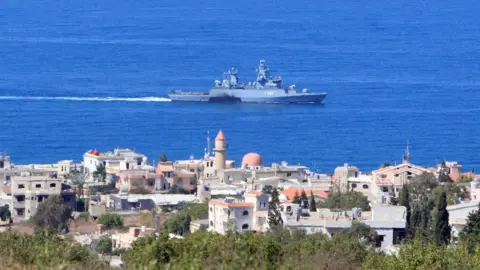Lebanon and Israel hold talks on disputed sea border despite state of war
 Reuters
ReutersLebanon and Israel, which remain formally at war, have held a first round of talks to settle a long-running dispute over their maritime border.
US officials mediated in the negotiations, which took place at the base of a UN peacekeeping force in the Lebanese town of Naqoura.
Both sides insist the talks are not a sign of any normalisation of ties.
But an agreement would allow them to exploit potentially lucrative natural gas fields under the Mediterranean Sea.
Lebanon is in dire economic trouble and is in need of additional revenue.
The negotiations come less than a month after the United Arab Emirates and Bahrain agreed to establish full relations with Israel after US-brokered deals.
What happened at the talks?
Lebanon and Israel agreed earlier this month to try to resolve their overlapping claims in the eastern Mediterranean following almost three years of US mediation.
The first round of talks at the headquarters of the UN Interim Force In Lebanon (Unifil) on Wednesday were facilitated by US Assistant Secretary of State for Near Eastern Affairs David Schenker and the US ambassador to Algeria, John Desrocher.
The lasted only an hour, but both sides agreed to meet again on 28 October.


The head of the Lebanese delegation, Army Deputy Chief of Staff Brig-Gen Bassam Yassin, said the meeting launched "the train of technical, indirect negotiations" and represented "the first step on a thousand-mile journey for demarcating the southern borders".
"We look forward... to achieving this file within a reasonable timeframe," he added.
A spokesperson for the Israeli energy ministry, whose director general Udi Adiri led Israel's delegation, said the two sides "discussed the framework to continue the talks and outlined the schedule for the upcoming meetings".
The Israeli delegation later briefed Energy Minister Yuval Steinitz, who approved their participation in the next round, the spokesperson added.
The US state department said representatives "held productive talks and reaffirmed their commitment to continue negotiations later this month".
 Reuters
ReutersIt had appeared that the start of the talks might be delayed on Tuesday night, after the militant Lebanese Shia Islamist movement Hezbollah, which fought a war with Israel in 2006, and its ally, the Amal movement, condemned the inclusion of civilians in the Lebanese delegation.
"This harms Lebanon's position and interests... and amounts to giving in to the Israeli logic that seeks some form of normalisation," they said.
An Israeli energy ministry source told AFP news agency: "We have no illusions. Our aim is not to create here some kind of normalisation or peace process."
Why are the neighbours technically at war?
Lebanon and Israel have remained in a formal state of war since the Arab-Israeli conflict of 1948-49.
 Reuters
ReutersWhile there is no agreed land border between them, they are committed to a ceasefire along the so-called Blue Line.
The boundary was drawn up by the UN after Israeli forces withdrew from southern Lebanon in 2000, ending 22 years of occupation.
It is one of the region's tensest frontiers, where Israel forces face those of the Lebanese army and Hezbollah, and peacekeepers from Unifil attempt to maintain calm.
In 2006, Israel and Hezbollah fought a month-long war that killed some 1,190 Lebanese and 163 Israelis. The conflict ended in a UN-brokered ceasefire.
